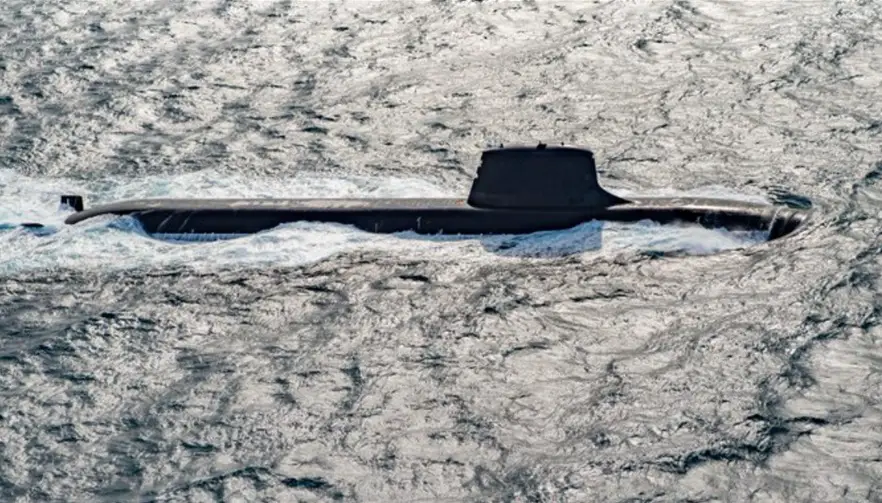In a significant step towards bolstering its maritime capabilities, the French Directorate General of Armaments (DGA) has officially handed over the nuclear attack submarine (SNA) Duguay-Trouin to the French Navy. This marks the delivery of the second of the six Suffren-class submarines, an integral part of the Barracuda program. The submarine was transferred to the French Navy’s base in Brest following an extensive trial campaign spanning several months. The submarine’s sea trials, which commenced in March 2023, have been instrumental in validating the performance of its diverse systems and equipment. These trials were meticulously managed by the DGA in collaboration with the Atomic Energy and Alternative Energies Commission, working closely alongside the French Navy, Naval Group, and TechnicAtome – the manufacturers responsible for bringing this advanced vessel to fruition.
The introduction of the Duguay-Trouin submarine reinforces the ongoing modernization of France’s SNA fleet, ultimately reinforcing its dominance over maritime territories and reaffirming its stature as a formidable naval power on the global stage. Since the delivery of the inaugural Suffren submarine to the French Navy in November 2020, and now followed by the Duguay-Trouin, the remaining quartet of submarines under the Barracuda program – Tourville, de Grasse, Rubis, and Casabianca – are progressing through distinct stages of construction. Their respective deliveries are scheduled to be completed by 2030, aligning with the strategic timeline set forth in the 2024-2030 military programming law.
Distinguished by their endurance and adaptability, the Suffren-class submarines serve as potent instruments of influence. Their multifaceted roles encompass diverse missions, ranging from deterrence support and carrier battle group protection to intelligence gathering and anti-submarine and anti-ship warfare. These submarines surpass their Rubis-class predecessors in terms of speed, durability, and versatility. Notably, they possess advanced capabilities for deploying special forces and engaging land targets at considerable distances, facilitated by the Naval Cruise Missile (MdCN). Following the Duguay-Trouin’s inaugural dive near Cherbourg in late March 2023, a collaborative effort involving governmental and industrial teams ensued to execute thorough sea trials. These trials rigorously assessed the submarine’s technical prowess and affirmed its navigational safety.
The comprehensive series of tests and trials encompassed a static dive, sans propulsion, to evaluate the submarine’s stability in immersion. Surface and diving assessments to scrutinize the vessel’s performance at various depths, its nuclear boiler room’s functioning, and overall installation safety. Dive trials that rigorously tested the combat system’s efficiency, including weapon deployment and communication capabilities. These evaluations provided a platform for the DGA’s technical experts to validate the submarine’s capabilities under real-world conditions. Their analysis relied on data acquired through the DGA’s measurement instruments. The Suffren-class submarines, emblematic of the Barracuda program, are outfitted with nuclear propulsion systems that confer an array of advantages. Leveraging these performance enhancements, these SNAs of the Suffren type embody a technological leap, allowing France to retain its status as a member of the elite group of nations possessing state-of-the-art and high-performance submarines.
















